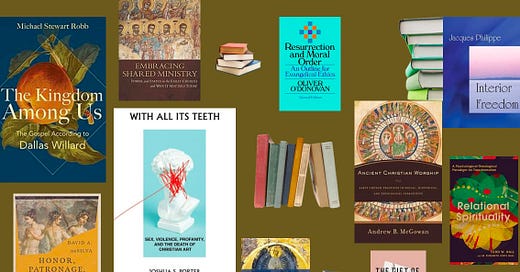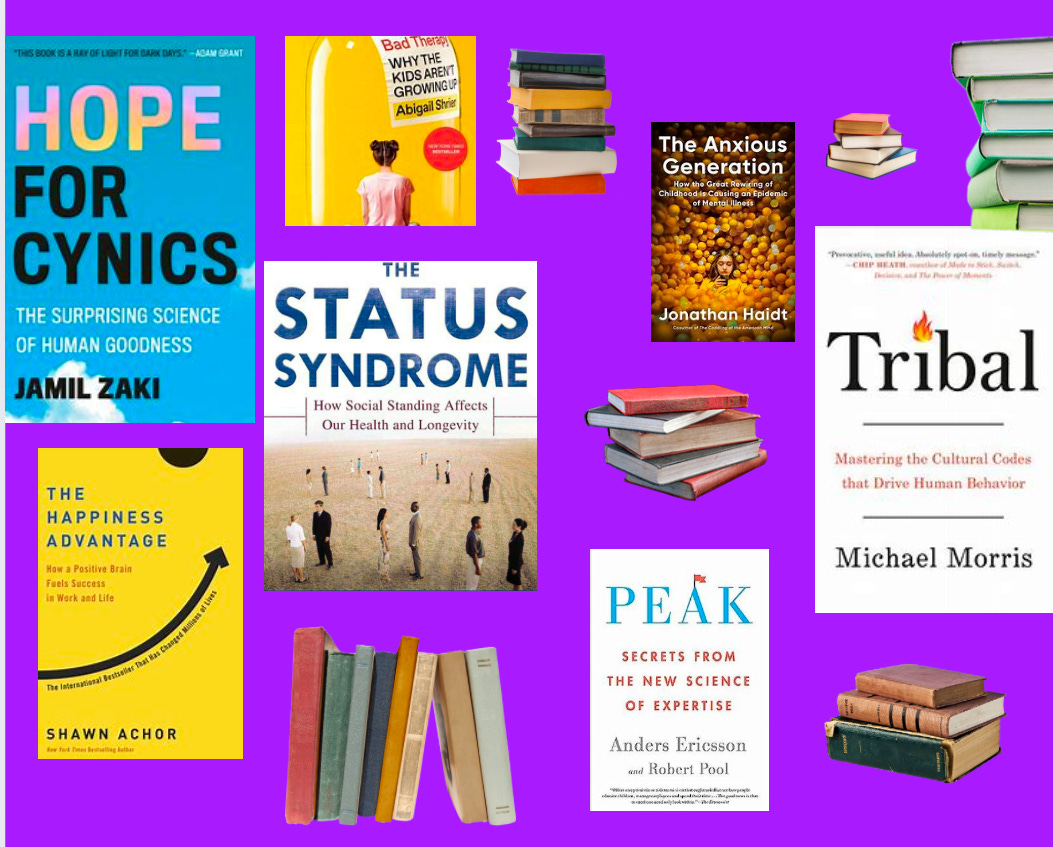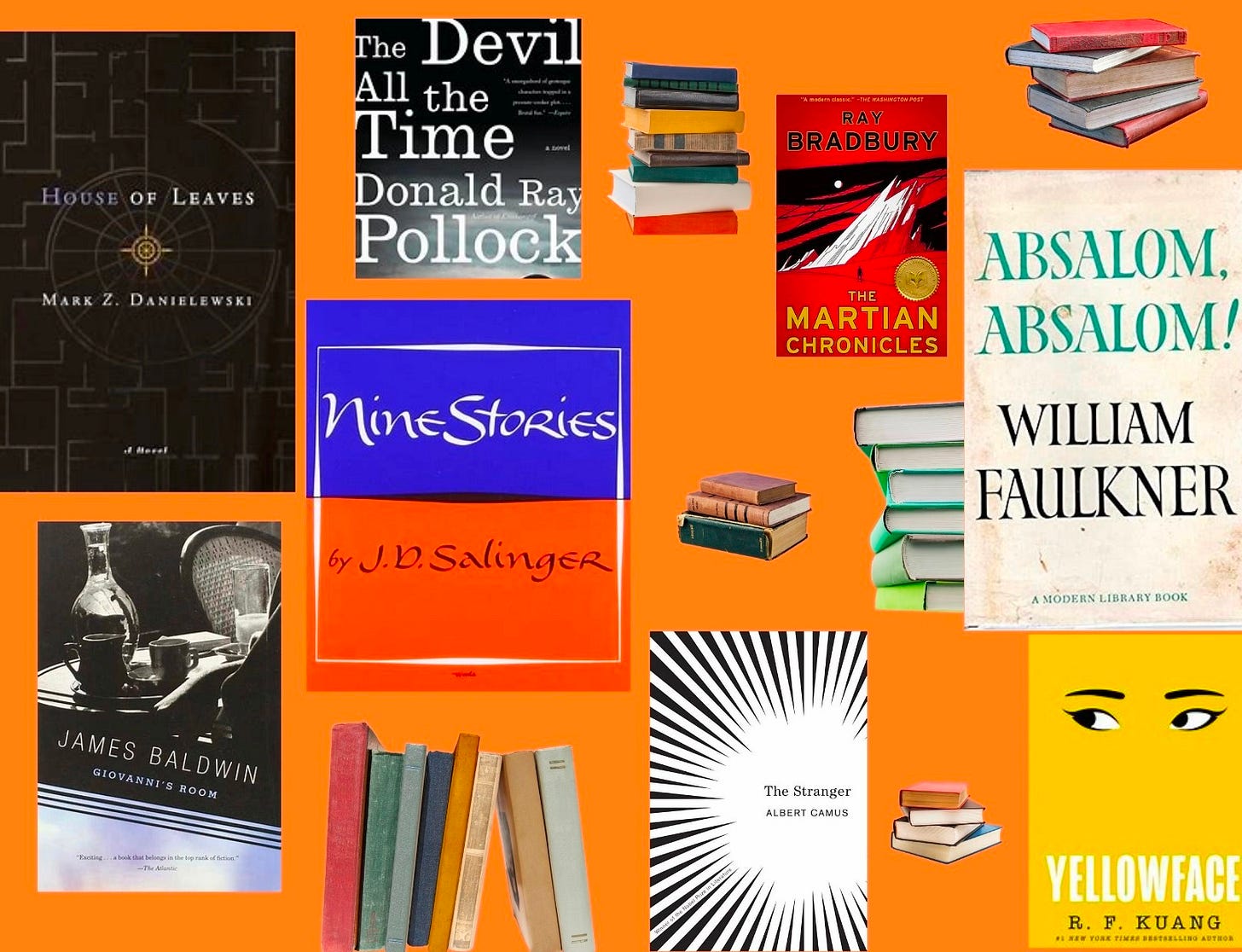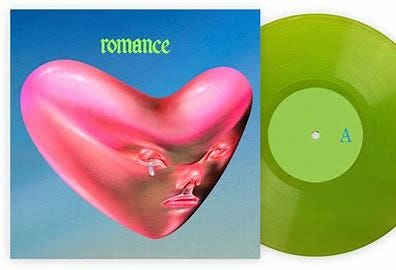Listmaking for the Sake of Pleasure
A Love Letter to Inventories (or "My Favorite Things of 2024")
You’ve all gotten to know me semi-well since the launch of this Substack about six months ago.
The typical content you see from me follows this pattern: the introduction of a problem through a story or analogy, commentary on that problem from non-theological academic disciplines, the connection of those insights to theology, and finally remedying the initial problem through some kind of practice or insight.
That’s the formula for my typical articles. But one facet of my writing I haven’t put on here yet is my lifelong passion for listmaking. I’m constantly grouping things that don’t require grouping, cataloging anything I’m even avidly interested in. It’s like a reflexive habit.
I’m almost positive that I make lists because I have no skill in doodling. My hands are inexplicably and perpetually shaky. So whenever I try to draw anything freehand, the paper usually, in the kindest way possible, asks me if I’ve ever considered other hobbies.
So writing up unproductive inventories of random parts of life became my stand-in for doodling. It almost feels like meditation. There’s a visceral relief from offloading mental weight onto paper—like putting your hurricane of ideas safely into cloud storage.
Listmaking sorts the strange and disparate aspects of life into a grid that feels manageable. Paulo Coelho, the author of The Alchemist, said that writing things down helps us believe that “the universe has a way of organizing itself.”
Something about lists appeals to the human mind. The Ten Commandments are arguably the most printed passage of all time. After the writing of the New Testament, early Christians listed the gist of the practical side of their faith in The Didache. Many of the most significant documents in history are in list-form: the Magna Carta, 95 Theses, Lausanne Covenant, and the Universal Declaration of Human Rights. It’s also a surefire way to attract buzz for an article, as those “10 Best Horror Movies of All Time” or “Tom Cruise’s All-Time Most Dangerous Stunts,” listicles attest.
The psychologist Robert Kraft found that listmaking appeals to our brains’ serial processing. Basically, we get less overwhelmed by information through organizing it into bite-sized chunks. Which makes sense in light of David Wallechinsky’s theory of why we make lists: “People are attracted to lists because we live in an era of overstimulation, especially in terms of information.”
Lists narrow this flood of information. They exaggerate the things most worthy of remembrance while rejecting the clutter. And, apparently, social scientists believe that each small act of organization spreads to other areas of our lives as well. Like Benjamin Franklin, a bonafide list aficionado himself, said, “For every minute spent in organizing, an hour is earned."
However, it isn’t just about keeping to-do lists for the sake of boosting productivity. Personally, my lists are almost exclusively non-pragmatic. I start most days by writing bullet points of gratitude. Piles of studies (and, in a way, Pauline doctrine; see Phil. 4:4-7,12-13) backup the power of these lists. After that, I’ll start ranking books or music or restaurants or experiences. Very few are “practical”—and that’s what makes them so enjoyable.
By now, you can probably guess where this is going: a compilation of all my lists of favorite things from 2024.
Books
1. Formation/Theology
With All Its Teeth by
I would love to study Josh Porter. Get mentored by him, too; but definitely study. He’s a hardcore band frontman turned Pacific Northwest pastor with a passion for spiritual formation. In With All Its Teeth, he offers one of the few syntheses for Christian engagement with art that I’ve found satisfying. Framing art consumption as a spiritual discipline just feels good and true and right. It also offers practical guidance on the role of less-than-wholesome content in Christian life—a topic shockingly few approach—that feels consistent with Paul’s theology in 1 Cor. 10 and Rom. 14. Porter is illiterate in terms of Christianese, which makes his prose fresh and authentic.
Ancient Christian Worship by
McGowan’s greatest achievement in this work is uncovering the historical meaning of “worship.” Surprisingly, it doesn’t have all that much to do with what Elevation Worship is up to. Worship isn’t necessarily singing or music, but a ritual and continual offering of the self-and/or community in service to God.
Honor, Patronage, Kinship, and Purity by David deSilva
There are four cultural concepts that pop up in just about every document of the New Testament that are almost completely lost on modern Western readers. You can probably guess the four via careful study of this book’s title. Personally, I figured I would just enjoy the section on honor and shame, but each and every segment of this book was filled with gorgeous insights that kept me surprisingly engaged.
Mere Christian Hermeneutics by Kevin Vanhoozer
This is the most recent read included on this list; I actually finished it this morning. Vanhoozer’s argument is easy to get on board with: we need to read the Bible theologically, not just academically, reconciling Bible scholarship with systematic theology. But what made this book astounding was simply his method for arriving at this conclusion. He amalgamates an expansive history of hermeneutical methods, draws on wisdom from each era and discipline, offers a humble diagnosis on the shortcomings of present scholarship, and illuminates a clear way forward. It’s heady yet digestible enough for any reader with a passion to understand the Bible. Most importantly, it made me fall in love with Scripture in an entirely novel way.
Relational Spirituality by Todd & Elizabeth Hall
One of the best spiritual formation books I’ve ever read. Though, to be perfectly honest, I wouldn’t necessarily call it “well-written.” Its academic integrity bogged down the writing style, so that some of its more important points get glossed over while many rudimentary building blocks received an exhausting level of detail. But I loved the book so much that I spent about a month rewriting it into simple language so that I could explain it to friends who were interested. And writing that sentence did make me wonder how often my wife considers whether she married an insane person. Anyways, anyone with an even cursory interest in the formation genre should absolutely pick this up.
Resurrection and Moral Order by Oliver O’Donovan
I saw a Goodreads comment that said, “O’Donovan is a terrible writer. Someone needs to translate this book into English.” That reviewer wasn’t necessarily wrong; but I do think that part of the beauty of O’Donovan’s work is its challenge.
Embracing Shared Ministry by Joseph Hellerman
Probably the book I will most copy for my dissertation.
The Gift of Thorns by
A.J. is such a skilled writer—a blessed rarity amongst theologians.
Interior Freedom by Jacques Philippe
Some books feel so prayerfully written that simply reading them feels like they water the interior garden, as Teresa of Avila called it. This is one of those books.
The Kingdom Among Us by Michael Stewart Robb
The thesis won me over immediately:
Dallas Willard is usually seen as an odd duck in 20th century theology, and few academics take his work seriously; but this is a mistake, as some of his philosophy is the richest within that entire time frame.1
The book is a synthesis of Robb’s doctoral thesis, so it’s not light reading (especially in the mid-to-late sections). But its argument is so vital: whether you’re a John Mark Comer-level fanboy or you roll your eyes everytime he’s quoted, we need Dallas Willard.
2. Social Science
Hope for Cynics by Jamil Zaki
This year I made amends to not rank books over and above one another and just make a vague list of ones I most enjoyed. However, this one might’ve been my absolute favorite. It melted away so much cynicism in the best possible way.
The Anxious Generation by Jonathan Haidt
There’s a law that says you have to include this book on any 2024 best-of lists.
Tribal by Michael Morris
This is a pop-level social science book that doesn’t talk down to its reader, which is a bit rare. My biggest qualm is its title. I would’ve called it something like “How Behaviors Become Normalized: A Social Science Amalgamation of How Trends and Moral Values Change and Shape Cultures — and How These Lessons Can Mitigate Social Division.” I realize that’s a terrible title, and you’re all probably figuring out simultaneously why I’m not an NYT Bestselling Author. Regardless, the research was stimulating, and it avoided many of the pitfalls and generalizations that bog down other books that try to explain tribalism.
Peak by Anders Ericsson & Robert Pool
Bad Therapy by Abigail Shrier
I don’t agree with everything Shrier writes; talk therapy isn’t entirely useless. But one thing I really agreed with was her criticism of how this generation often uses their therapists as surrogate friends. On one hand, the friendship is entirely perfunctory (and illusory) since it’s a professional service upheld by a transaction. On the other hand, therapists make horrible surrogate friends: they aren’t allowed to put your name down for karaoke against your will or help you move or try to set you up with one of their friends. Therapy is wonderful; but it’s a poor substitute for the joys and risks and goofiness of embodied, non-transactional relationships.
The Happiness Advantage by Shawn Achor
For a book about happiness, I found this one enormously depressing. It seems like the God in Achor’s worldview is work productivity, and happiness is just the means to that end. If I didn’t have a Christian worldview, these arguments would’ve felt morbidly empty. But thankfully, since I did respond to an altar call during an evangelical church service, I am now legally a Christian. Seriously, though. Applying some of these principles to a Christ-centered framework has been life changing.
The Status Syndrome by Michael Marmot
3. Fiction
Now, rating fiction is hard, because it’s almost never the first year I read Blood Meridian by Cormac McCarthy, which is the best fiction book, objectively. Nonetheless, here were my favorites this year:
Nine Stories by J.D. Salinger
“A Perfect Day for Bananafish” should be framed in more reputable institutions. Seymour Glass is Salinger’s stand-in character, and his erratic behavior was a vehicle for the expression of Salinger’s wartime trauma. Out of all the novelists who saw combat during WWII (Vonnegut, Heller, Orwell, Dahl), Salinger apparently saw the most. He was even one of the first American soldiers to see the concentration camps. Which is almost unimaginable; we rarely think of this nowadays, but during WWII, very few understood what the concentration camps were and the gravity of what happened there. So to unknowingly stumble upon one of history’s greatest atrocities, return home from war, and then start writing about angsty teenager named Holden Caufield is, to me, one of literature’s greatest anomalies. Catcher is one of my favorite novels, but “Bananafish” is, to me, a story that more perfectly encapsulates the wartime trauma Salinger must’ve been living with. The other 8 stories are lovely (particularly “Esmè” and “Eskimos”), but “Bananafish” was my favorite.
Absalom, Absalom by William Faulker
I’m of a small and unproud camp that loathed As I Lay Dying, so I was a bit nervous for this one. I always worry that I’m going to hate classics, because then people will uncover that I am an intellectual fraud. It’s why I’m afraid to attempt Ulysses. But Absalom was simply fantastic. I read it over the course of family vacation and it dripped all sorts of creepiness and brooding and disjointed prose into my headspace. I can definitely see how Cormac McCarthy’s writing was inspired by it.
The Stranger by Albert Camus
For a dark and macabre story, The Stranger was peculiarly fun.
Giovanni’s Room by James Baldwin
I don’t think I’ve ever read such a vivid and disquieting depiction of the loneliness that comes from cultural and relational alienation.
House of Leaves by Mark Danielewski
don’t ask
The Martian Chronicles by Ray Bradbury
The Devil All the Time by Donald Ray Pollock
Yellowface by
Kuang came to my hometown this year for a signing event and my wife and I got to go. She’s a phenomenal speaker and a brilliant mind. This book had perhaps the most cynical narrator I’ve ever read, but its content and delivery really just worked for me. It also works as an interesting mediation on the dynamics of mimetic desire and status-obsession.
4. Etc.
The Death of Expertise by Tom Nichols
Some people critiqued this book for its pomposity. I see where they’re coming from, but I don’t think that should detract from the importance of its message. This should be required reading for anyone fascinated in the role of experts in public life.
The End of Race Politics by Coleman Hughes
When I say I liked this book, I’m not saying it as an expert in race politics; I’m saying it as a guy who’s read maybe 3 books on the topic. What I enjoyed most about Hughes’ position was simply his attempt to offer a way forward that felt hopeful and practical.
Status and Culture by W. David Marx
The Copenhagen Trilogy by Tove Ditlevsen
I realize this one is technically fiction, but it reads exactly like a memoir. And for anyone who’s struggled with addiction, you’ll know that this isn’t a work of creative imagination—it comes across as incisive recollection.
The Best Minds by Jonathan Rosen
The Scent of Time by Byung-Chul Han
The Human Condition by Hannah Arendt
The Art and Business of Online Writing by Nicholas Cole
This book is the reason I started a Substack.
From My Own Archives
The best performing article I’ve ever had was this year’s “Why Connections Make Life Worth Living.”
However, my personal favorite was “How a Skull and Hourglass Alleviate my Anxiety.”
Music
Apple Music told me that I listened to more music in this past year than in any other year since I first got an iPod Nano in 5th grade. That sounds about right; I love music now more than ever. I have no thoughtful way of describing it beyond that I just love it. It makes me feel like there’s life in the mind and veins. Music is always playing in my head from the time I wake up until I go to bed, my fingers tapping in the rhythm of the tempo of whichever song I last listened to.
Part of the beauty of music is that it’s hard to describe; philosophically speaking, it exists as an extension of our ability to express ourselves; when words fail, music is like an appendage that allows us to demonstrate our innermost ineffable sensations and longings. Like Tolstoy wrote, “Music is the shorthand of emotion.”
And the fact that the majority of songs are love based isn’t any coincidence. Love really is the most powerful force in the universe. It only makes sense that we can’t stop writing about it, singing about it, chasing the apotheosis of it through artistic expression. As Sidney Lanier put it, “Music is love in search of a word.”
Anyways, here are three albums I believe particularly worth noting:
1. Romance by Fontaines D.C.
2. Chromakopia by Tyler, the Creator
3. Shirt by Porches
note: when I say I enjoy an album, it is not because I condone the morals or ideology behind said album, but because I find the artistic innovation and musical prowess laudable.
Other albums I liked but found less worth noting:
Life Till Bones by Oso Oso
Manning Fireworks by MJ Lenderman
Love Hate Music Box by Rainbow Kitten Surprise
Glimmer of God by Jean Dawson
GNX by Kendrick Lamar
Songs worth noting:
Movies & TV
I’m not sure why I even included this category. I don’t really keep up with movies and tv at any acceptable rate to be able to say “This was the year’s best film!” Chances are, I saw maybe one movie that was nominated for the Oscars. I can’t confirm this, though, because I have no idea what movies were nominated for the Oscars or if that has even happened yet. I suppose I could google it, but I feel quite satisfied with my present level of awareness. So if you’re like, “how did you not include A Real Pain?” please know that it is because I did not see it, because I have not seen many. Anyways, these are the ones I thought noteworthy:
Movies:
The Substance, My Old Ass, Strange Darling, Longlegs, & Fall Guy
TV:
Fallout, Industry (Season 3), & Mr. and Mrs. Smith
Activities
This year, I had a revelation after hearing something the psychologist Jonathan Haidt shared on the promotional tour of The Anxious Generation. He said that “Girls hang out face-to-face, boys hang out shoulder-to-shoulder.” Basically, girls are typically satisfied building social gatherings in which face-to-face conversation is the primary event. But boys prefer activities they can do shoulder-to-shoulder, such as: sports, video games, interactive goals, etcetera. Maybe this seems mundane insight for you, but for me, it was like a total paradigm shift.
Personally, I loathe the short laundry list of activities that are anticipated amongst Protestant men. The fact that most of our hangouts are built around early morning coffee, staring face-to-face into each other’s eyes, is just not always my cup of tea. And as I brought this up to more of my guy friends, they agreed: why is this the only activity Christian men are allowed to do???? So I made it a goal to eradicate early morning heart-to-heart coffees (not really; I’ve been on like 4 this past month, all of which were enjoyable, but still) and replace them with shoulder-to-shoulder activities:
Walk
Have you heard of walking? It’s crazy how entertaining it is. Going on an alone walk is surprisingly thrilling; but calling your friend who you know you can have an amazingly sporadic and niche conversation with whilst on a 3 mile walk through a nature reserve is simply miles better. You’re shoulder-to-shoulder the whole time and getting exercise while soaking in the raw nature of your surroundings. 10/10, highly recommend. Check out Ruth & Peco’s excellent article on joining the walking rebellion if you need inspiration.
House Projects
House projects are lowkey fun. Call your friend to come over and help you paint. Go to his place and help fix his sink. Install a new ceiling vent. Set up a dishwasher. House projects bring out a weirdly primal part of the brain—the accomplishment that comes from it feels strangely satisfying.
Trivia
Trivia is fun. Go to a restaurant, a bar, a trivia depository with friends and enjoy.
Cold Plunges
This is perhaps the best activity for trying to challenge yourselves to something as a group. Got really tough in December when the lakes froze over though. As of late, we’ve been driving to each other’s houses in the early mornings and taking turns plunging in backyard tubs. It’s painful, but you’ll feel ecstatic from the aftereffects.
Write Something Together
Yeah, this one is a bit more niche, but it’s a wonderful experiment. I’ve only successfully written one joint piece, but good Lord it was fun.
Games
I realize that if you’re getting a Ph.D., you’re supposed to say you hate video games. This is what I did for the past decade. I liked making it seem like I was above video games, because I had a Kant book to read and deadlines to hit. But I’ve never successfully made it through a full Kant book without aggressive skimming, and most academic deadlines at this point in my career are arbitrary. I don’t cheer on anyone playing video games for hours on end by their lonesome. But when it’s a weekend and you want to just mess around with some guys, I’ve been trying to get shoulder-to-shoulder a bit more and play games—whether board or video, I don’t discriminate much. Yes, there are better ways to use your time, but every once in a while, it’s just a relaxing way to hang out and banter.
Personal Reflections
This was possibly the best year of my life.
I crossed a lot off my life-goals checklist (getting a master’s, starting a PhD, getting published in Christianity Today, Mere Orthodoxy, and Fare Forward, getting published in four academic journals, teaching my first college course, and actually finding a group of people that seem to like my writing on Substack).
But none of those milestones were what made this year meaningful. The most meaningful parts were almost entirely void of pragmatism: the weekend getaways to Michigan beach towns with my wife this summer, starting an intentional small group with close friends, playing guitar and vocals with my uncle and I’s impromptu band that only does one show a year, hanging out with my niece and nephew, and growing in my understanding of knowing and being known by God. That’s what really mattered. The rest is just commentary.
I love life, thank you.
Also, in case you missed it:
paraphrase















Thanks for this, look forward to checking some of these things out!
I have heard the same regarding O'Donovan - sounds like he has a bit of a reputation!